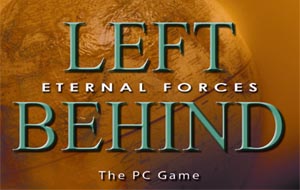
In the latest evidence that "Newsweek" is seemingly obsessed with Christianity, the cover story and subsquent sidebars address the issue of "The world into which Jesus was born and raised has shaped morals for two millennia. How Jewish mores became Christianity's customs."
(UPDATE: The magazine's stories miss a lot. A lot. More af a line-by-line analysis later.)
OK, OK, I confess. It was the promise of an interview with Sylvester Stallone and the 1980-auteur's revival of the "Rocky" franchise with the fifth installment, titled "Rocky Balboa."
(Contrary to popular belief -- or this link -- there is no such thing as a "Rocky V." You hear me? It didn't happen.)
If I had a chance to meet, say, five famous people, alive or dead, Stallone would be on the list. Call it corny or a childish fantasy, but I love those movies. They are, as a whole, my favorite movie of all time. Bar none.
I still have, in my possession, a pair of Rocky swimming trunks; a "Rocky IV" cut-off T-shirt; a pair of boxing gloves that, in the absence of an opponent (read: my brother or my dad) I would use to hit myself in the face while acting out scenes from the movies; and, my personal favorite, a long-sleeved T-shirt that I myself designed back when you could find those T-shirt kiosks in the mall what would outfit the shirt of your choice with any number of cheesy images (wizards, Trans-Ams, buxom babes in bikinis, etc.) and, then, personlize them with puffy letters. If you were born in the early- to mid-70s, you know what I'm talking about. Anyway, my shirt was white with black sleeves, a snarling tiger on the front, puffy yellow letters down each arm that say "Rocky Balboa" and, on the back, even bigger puffy letters (black this time) that say, "Eye of the Tiger." Needless to say, my career as a clothes desinger coincided with "Rocky III," which coined the "Eye of the Tiger" phrase.
You know why I would like to meet Stallone? I want to shake his hand, pat him on the back, and say, "thanks." Without those movies, my childhood would not have been as good as it was. And I'm being completely serious.
The question all this raises is why are we so drawn to underdog stories? The "Rocky" franchise bills itself as "The Greatest Underdog Story of Our Time," and I don't doubt that's true. A down-on-his-luck fighter gets an inexplicable shot at the heavyweight champion of the world, trains his butt off and, in the greatest heavyweight fight of all time (if it were real, that is), takes the champ all 15 rounds before losing. Thing is, he didn't really lose ... oh, he lost the fight, but he won his dignity, his respect.
Of course, in subsequent movies, things change. He gets famous, rich, etc. But the point of it all is the same: a guy "whose whole life was a million-to-one shot" makes something of himself from the sweat of his brow ... and the meat of his fists. Now that's a story.
The Greatest Underdog Story of Our Time? Yeah, I buy it.
But it's not the Greatest Underdog Story of All Time. Another tale takes that title.
Here's an illustration that you may not recognize, but bear with me: Let's say there's this unwed woman living in Afghanistan. She's nine-month's pregnant, and homeless. She's forced by the Taliban to go back to where she was born in a small region near the Pakistani border to register with the authorities, not only so they can keep track of her, but because they are instituting a "taxation without representation" system to the provinces it governs.
She's broke and overtaxed, living in a land that erupts from time to time by civil war and ruled by a government with no legitimate claims to do so. When she finally has her baby, she does so without the benefit of a doctor and, out of fear for the baby's safety in a land where a ruler like Osama Bin Laden is running the show, she takes off for Africa, where's she's never been. She's 14 years old.
That's a modern context, but it's the kind of circumstances into which Jesus was born. Was there any historical figure that was as much an underdog as Jesus? Growing up, Jesus knew the poor, the oppressed and the powerless firsthand.
Is it any wonder that the first person He ever told He was the Messiah was a woman who'd been married five times and was living with a man that wasn't number six. Jesus associated with these types of people for a reason: that's who He came to save.
And because He started His life in such rough-and-tumble circumstances, He was the ultimate underdog, whether He was God or not.
Jesus loved people for whom the future is not secure. He could relate.
Do you have an underdog's attitude? Do you make an effort to help feed the woman in line at Go-Mart with the handful of food stamps. Do you donate your time at the homeless shelter? Are you an underdog? There are many people who are.
This is, of course, the worst time of year for those against whom life has turned its back. And that's why Jesus can relate so much ... He came into this world as God, yes, but He was the biggest underdog of them all.
(copyright andrew j. beckner, 2006. all rights under copyright reserved.)










